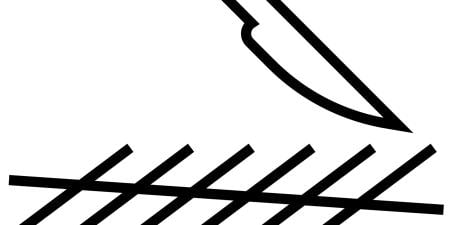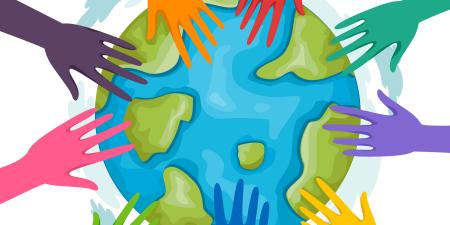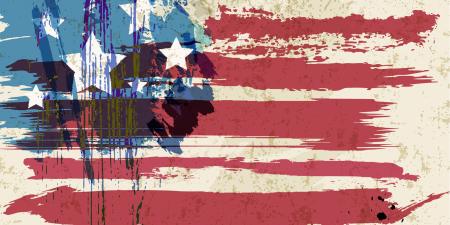Learning to Listen in a Resource-Poor International Setting: a Medical Student’s Encounter with the Power of Narrative in Kenya
After talking with a woman who was living with HIV and caring for an HIV-positive child in the resource-poor community of Kawangware in Nairobi and completing a public health needs assessment for her, one of my medical school colleagues posed the following question to our volunteer group as we were working at the clinic: “What do I say to her at the end of the needs assessment when she asks me if I have hope that she’ll live?” I remained silent. How can I as a healthy, educated, middle-class medical student from the United States answer a question so outside the context of my daily life? Given my position of relative global power as an American citizen and consumer, can I offer her more than words of solidarity or a prayer? What new moral claims do I feel placed upon me by these global neighbors as they let me into some of the most intimate parts of their lives? These questions were just the beginning of a larger personal reflection that grew from dozens of interviews with members of various resource-poor communities in Kenya and from discussions among seven of my fellow volunteers.
Most members of the group had just completed their first year of medical school only days before we arrived in Nairobi. As we laid the framework for our trip, we had decided that we wanted to experience an international service learning trip through the lens of public health by using a needs assessment to understand how social determinants of health impacted the lives of those we interviewed. We also designed health education modules covering hand sanitation and HIV transmission prevention. Compared to the modules, however, the needs assessments spoke volumes to us as illustrated by the eagerness to cooperate on the part of many of our participants.
For some of those interviewed, it was the first time they had ever felt listened to, as we found out from them or their translators. And hearing about the power of having a voice and feeling heard illustrated for me a learning point that I might have missed had I come to Kenya primarily to study the science of medicine. I could have easily done just that given the disproportionate infectious disease burden there. As a person who feels “heard” more often than not, I realized that these survey participants were teaching me more about the art of medicine than I might have expected at first glance. I quickly realized how valuable it was to ask comprehensive questions about their lives and experiences, the answers to which informed my understanding of how their health was shaped beyond the ailments of HIV or malaria they might have had at that moment.
I did learn some of the science of medicine, though, if not explicitly clinical. We used a needs assessment to acquire quantitative and qualitative data that—we hope—will serve the community through its analysis. But because we designed this trip from a public health perspective and left the stethoscope and Bates’ Guide to Physical Examination and History Takingbehind, my education in the art of the medicine remained a key component of my experience in Kenya. Being invited for just a glimpse into some of the most unjust and difficult life stories imaginable demonstrated to me how powerful narrative (and the skill of listening) can be in the patient encounter.
I did not need to go to Kenya to understand this clinical pearl, but it was there that I most acutely did. I suspect other students also experience this abroad if not in resource-poor areas of the United States. Paul Farmer writes, “We need to listen to the sick and abused and to those most likely to have their rights violated. Whether they are nearby or far away, we know, often enough, who they are. The abused offer, to those willing to listen, critiques far sharper than our own” [1]. I experienced this “sharper critique” as stories of dying from tuberculosis and AIDS-related illness, stories of poverty and a lack of employment, of abuse and, yet, stories of hope, love and faith poured out from the mouths of Kenyan men and women and onto my feeble survey, a document I could bury myself in when the raw emotion of the situation hit me.
Medical students working abroad in resource-poor, low-income settings will encounter a host of experiences and confront a variety of feelings, perhaps including some I have described. Students bring a rich array of experiences and feelings with them that affect their ability to truly listen to the content of the patient’s words, and it is to our benefit to explore these feelings before, during and after our international immersion. Like me, students may find themselves seeking clarification about how to incorporate international health care into their future careers after short-term, life-changing work. And medical students traveling abroad for the first time in their burgeoning professional capacity should be prepared to expect the unexpected despite extensive planning and pre-trip education; to experience complementary or conflicting feelings of duty, ignorance, education, helplessness and purpose all in a matter of days or weeks; to anticipate an unfolding lifetime of further professional and vocational reflection and action.
Remaining truly present and attentive may be the most difficult aspect of learning the art of listening in medicine, especially where unfamiliar contexts, cross-cultural issues and language barriers coexist. As physicians-in-training, we have a potentially easy exit—turning our focus to the rigmarole of the chart, looking down at the survey with intent, deflecting a consideration of the often difficult-to-comprehend social determinants of health or concentrating on the biomedical components of the present illness. For me, listening to these difficult stories took more energy at times than I could have imagined listening could possibly require. And yet listening is a skill that we as medical students must continue to practice consciously as we discover our personal limits in relation to our pursuit of justice and caring for patients holistically.
Listening is an end unto itself, but it is also a means and a beginning to addressing aspects of patients’ lives that lie outside but impact the biomedical context. In seeking out patient narrative, especially in international resource-poor settings, we must ask questions (in a culturally sensitive manner) to which we may fear to know the answers, answers that expose injustice yet open a new world of possibility to the patient and physician.
References
-
I want to acknowledge my partners and team members, Lisa Dunning, Kathy Hakanson, Mark Hakanson, Keen Harrison, PhD, Andrew Loehrer, Terri Parks and Jaime Sua. All of them opened themselves to the power of narrative through these needs assessment surveys and, through our shared stories from survey participant encounters, they provided me valuable insights.
-
Farmer P. Pathologies of Power: Health, Human Rights, and the New War on the Poor. Berkeley: University of California Press; 2005:239.



